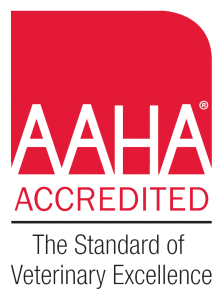A Registered Veterinary Technician (RVT) is essentially the "right hand man" for the veterinarian. Just like medical doctors work alongside with nurses, veterinarians count on RVT's to help them with a variety of procedures.
The type of work that you will do as a RVT varies depending on your experience, what type of setting you are working in and your specialties. Despite the range of responsibilities, there are some general procedures that almost all vet techs will take care of during their careers. This list is by no means all of the duties or set in stone.
Common RVT Duties ( in no particular order):
lab analysis (blood, urine, fecal tests)
dental Care
preparation of samples
inducing and monitoring anesthesia
general nursing duties
radiography
client education
surgery preparation and assistance
patient restraint
wound care
office work
inventory
What RVT's don't do:
diagose patients
surgery
prescriptions
So as you can see the list is pretty lengthy. Anything the veterinarian needs help with thats what the vet tech is there for. Many people confuse vet techs (RVT's) with vet assistants. Vet assistants do not have RVT status, some have learned on the job or obtained certicates from online vet asistant programs.
Scooling and Training:
Certified veterinary technicians are individuals who have graduated from a two year vet tech accredited program. Veterinary technologists are students that have graduated from a three year program, where the third year is primarily conisiting of laboratory animals and research. In most provinces graduates have also taken a passed a national registration board exam (VTNE). All provinces require technicians to pass this credentialing exam in order to obtain official licensure or certification. RVT's that have been out practicing in the field for a minimum of five years also hav ethe abilityy to upgrade their credentials by becoming certified in a veterinary technician specialty. There are many specialties available, Lisa one of our RVT's here went through the task of becoming certified in small animal anesthesia. It took a few grueling years to complete but Lisa says "Although it was very challenging, it was one of the most rewarding moments inmy career." Here is a link to one of Lisa's interviews...
http://vetmedicine.about.com/od/veterinarycareers/a/Life-As-A-Veterinary-Technician-Randon.htm
So if you are thinking of becoming an RVT, try volunteering at a local shelter, veterinary hospital or completeing a co op pplacement through school. If you truly like being with animals it can be a very rewarding career. October 14 - 20th, 2012 is deemed as National Vet Tech Week, so hug a tech today!
The type of work that you will do as a RVT varies depending on your experience, what type of setting you are working in and your specialties. Despite the range of responsibilities, there are some general procedures that almost all vet techs will take care of during their careers. This list is by no means all of the duties or set in stone.
Common RVT Duties ( in no particular order):
lab analysis (blood, urine, fecal tests)
dental Care
preparation of samples
inducing and monitoring anesthesia
general nursing duties
radiography
client education
surgery preparation and assistance
patient restraint
wound care
office work
inventory
What RVT's don't do:
diagose patients
surgery
prescriptions
So as you can see the list is pretty lengthy. Anything the veterinarian needs help with thats what the vet tech is there for. Many people confuse vet techs (RVT's) with vet assistants. Vet assistants do not have RVT status, some have learned on the job or obtained certicates from online vet asistant programs.
Scooling and Training:
Certified veterinary technicians are individuals who have graduated from a two year vet tech accredited program. Veterinary technologists are students that have graduated from a three year program, where the third year is primarily conisiting of laboratory animals and research. In most provinces graduates have also taken a passed a national registration board exam (VTNE). All provinces require technicians to pass this credentialing exam in order to obtain official licensure or certification. RVT's that have been out practicing in the field for a minimum of five years also hav ethe abilityy to upgrade their credentials by becoming certified in a veterinary technician specialty. There are many specialties available, Lisa one of our RVT's here went through the task of becoming certified in small animal anesthesia. It took a few grueling years to complete but Lisa says "Although it was very challenging, it was one of the most rewarding moments inmy career." Here is a link to one of Lisa's interviews...
http://vetmedicine.about.com/od/veterinarycareers/a/Life-As-A-Veterinary-Technician-Randon.htm
So if you are thinking of becoming an RVT, try volunteering at a local shelter, veterinary hospital or completeing a co op pplacement through school. If you truly like being with animals it can be a very rewarding career. October 14 - 20th, 2012 is deemed as National Vet Tech Week, so hug a tech today!

